“We have all felt like we couldn’t stop [making masks],” Barbara Mock, a retired professional seamstress said. “Initially when we did this we thought if we did this for a couple of weeks until the businesses that actually do make masks ramp it up and take over, but we’re not seeing that end yet.”
According to Get Us PPE, a grassroots movement founded by physicians and medical researchers since the COVID-19 outbreak, “the majority of surveyed institutions have less than two weeks supply of PPE remaining.”
Communities across the country are doing what they can to help.
For instance, nearly 8,000 face masks have been created and distributed by the volunteers of Mask Making for Athens as of Tuesday, April 28. Production started the week of March 21 and there’s no sign of an end to the need.
The group, originally called Mask Making for Athens Healthcare Workers, focused its initial efforts toward supplying Piedmont Athens Regional Medical Center (PARMC) and St. Mary’s Hospital employees with cloth masks in order to reserve more substantial protective personal equipment, such as N95 respirators, for direct-patient contact.
Mask Making for Athens founder Melinda DeMaria joined forces with four other Athens residents to create the group, organize existing efforts, and get the word out. The five now lead different aspects of the organization, which has utilized Google Forms to organize the efforts of 448 people to obtain supplies, sew and deliver the masks.
Rev. Margaret Davis, one of the leaders and the designated spokesperson for the group, attributes the number of volunteers to its shared leadership, which allows Mask Making for Athens to contact volunteers quickly and utilize all levels of craftsmanship.
“We are not being militant about the types of masks that people sew,” Rev. Davis said. “There are a variety of acceptable designs and materials that can be used and we encourage people to find the one that works for them.”

Volunteers are divided by task: sewing, delivering and supplying. Rev. Davis said new volunteers are always needed with the ongoing demand.
“We get some new (volunteers), but we lose some too as folks get injured, or their machines break, or they just get busy and tired and need a respite for a time before rejoining the effort,” Rev. Davis said.
Quoting Anne Frank, founder DeMaria encourages volunteers in her emails saying, “‘How wonderful it is that nobody need wait a single moment before starting to improve the world.’”
At The Hospital
PARMC’s Communications Specialist Sydney Walker said nearly 7,000 handmade masks have been donated by various organizations and individuals as of April 21. The hospital is providing all patients entering the facility with one of these.
“The patient would keep the cloth mask until [they are] discharged from our facilities,” Walker said. “Having these donated masks available would help Piedmont save surgical/procedural masks to use on providers and clinicians.”
Nurse Sarah Seabolt, who works in PARMC’s labor and delivery department, is provided a regular clinical mask for the majority of her patient care.
“Then if I go and do a C-section in the operating room or have a potential positive patient, then I would wear an N95 respirator, but all that stuff is so limited in supply, and I will only be given one N95 total,” Seabolt said.
“The Centers for Disease Control and Prevention does not recommend that the general public wear N95 respirators to protect themselves from respiratory diseases, including coronavirus (COVID-19).”
Seabolt said she holds on to her donated fabric mask just in case.
“I think they’re just wanting to make sure we have a fabric mask as a backup if we run out of everything,” Seabolt said. “And also just when I change in our locker room and I walk to my car, I wear the fabric mask from the locker room to my car.”
Mask Designs
Seabolt received her handmade facemask from her friend Amanda Kapasouzou, a seamstress for STATE the Label. PARMC now refers mask makers to this design, which has been posted on STATE’s website.
Kapousouz was originally contacted before St. Patrick’s Day by a friend who works at St. Mary’s who anticipated the PPE shortage. Since then, she has developed a series of face mask designs—one of which doesn’t require any sewing.
“With the no-sew one, it’s important to me that we give that information to people so that they feel capable, and that they’re able to protect themselves. You know I just would like for people to feel empowered and capable,” Kapousouz said.
The combined efforts of the STATE seamstresses has allowed them to donate 500 masks to PMARC and St. Mary’s Hospital. Kapousouz,however, says she wants to do more.
“What I wish I could do but can’t is just, you know, sew 5,000 masks and get them distributed to everyone who needs them,” she said.
In addition to selling hand-painted masks on their website, STATE has been donating fabric and elastic to Making Masks for Athens. Kapousouz said it is encouraging to see the community working together.
Amanda Kapousouz has transformed her coffee shop Buvez into a workspace to sew face masks. Buvez is located next door to STATE the Label, where Kapousouz collects the supplies to make the masks. (Photos Courtesy/Amanda Kapousouz)
“Athens, you know, it’s a university town, but also there’s just this very vibrant artistic community too,” Kapousouz said, “And so that generates a lot of unique circumstances as far as like, ‘Well of course I know somebody who can sew because this is Athens.’”
Created by Barbara Mock eight years ago, the organization gained recognition among North Georgia hospitals by donating ballerina tutus and superhero capes to children with long-term illnesses and disabilities.
Based in Monroe, Georgia, the group has expanded to 38 members to provide healthcare workers with the face coverings the hospitals have been unable to provide.
Like many mask-making organizations, Tutu has had difficulties obtaining materials such as elastic, but as word of their need has spread, people within and beyond the community have provided.
For example, New York’s Sheet Metal Workers Local 28 provided 2,000 aluminum nose pieces upon learning of their need for the metal strips used for structural shape in the cloth coverings.
Despite the generous donations which have allowed Tutu Capers to distribute so many face masks, Mock said the requests for masks are as urgent today as they were four weeks ago.
“I think that’s a challenge too, just knowing how desperate people are for them,” Mock said. “We have lots of people asking for them for their own personal selves, and we’re having to say no because we’re not even able to keep up with the medical needs.”
Mock said amid challenges to stay upbeat, she’s been encouraged to see her community members collaborating.
“The community that I live in has come together to such an unbelievable degree of fellowship… spending hours of every single day doing this,” Mock said. “It’s truly a blessing.”
Lane Seabolt, nurse Seabolt’s husband, has been contributing to PPE creation efforts as well. Seabolt currently utilizes his background in design and carpentry to create face shields with a 3D printer in their home.
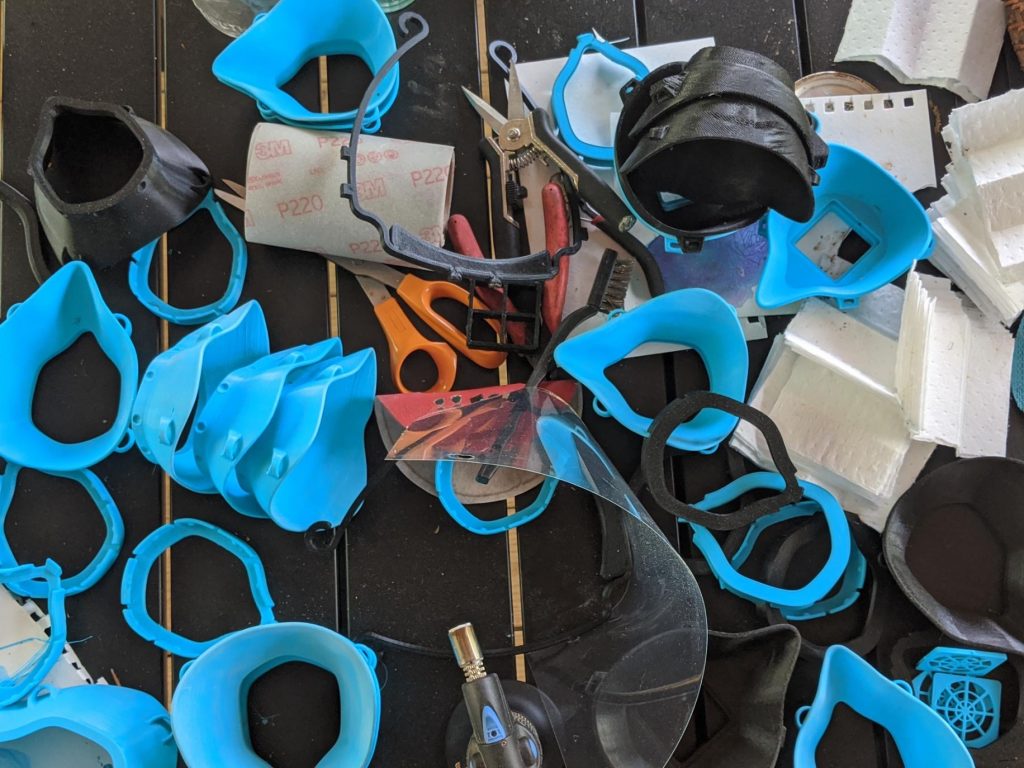
Recognizing Greater Needs
Seabolt said there’s been a considerable learning curve in face shield production.
“For the first five days for me, they all failed and were miserable,” Seabolt said. “But I printed, I don’t know, 15 face shields yesterday and six of them failed. It’s remarkably inefficient, but right now, thankfully, we have a lot of free labor because people are stuck in their houses.”
Although encouraged by the community’s efforts, Seabolt said the pandemic emphasizes the stark monetary divide among Athens residents. (Athens-Clarke County has a poverty rate of 31.6% according to U.S. Census data collected from 2014 to 2018.)
“Athens is unfortunately a perfect example of the ways in which privileged people like us can utilize our social capital to make sure to protect ourselves and the ones closest to us in an event like this,” Seabolt said.
Rev. Davis said Making Masks for Athens is mindful of the largely ”white and middle class” demographics of their group and is making considerable efforts to get masks to everyone who needs them.
“We are the privileged, living and trying to be useful amidst a quarantine of the privileged. But we do not want to just serve ourselves and those that look like us, who easily find us organically through our social media networks,” Rev. Davis said. “Everyone is invited to serve our community in this way, and we want everyone who serves others and who is vulnerable to be able to have a mask.”
In the organizations’ Google Form, there is a section to request masks, and ‘Mask Making for Athens’ has received 210 unique requests so far. The group, however, has additionally focused on reaching out to organizations that may need masks.
“We have been working hard on outreach to get word out to essential services, (healthcare) providers and agencies that work with the vulnerable and underserved,” Rev. Davis said. “We need the essential businesses and agencies to contact us to help us get the masks in the hands of the exposed and vulnerable, especially as things open up.”
Some of the groups they’ve reached out to include: funeral homes, postal workers, social workers, school lunch delivery outfits, various organizations that serve the unsheltered population, and the Athens Housing Authority.
The official count for requested masks has been 9,253 as of April 28, and Rev. Davis says she anticipates an influx of requests in the coming week.
Once created, delivering the masks takes about one or two days. As production continues daily, there are always more masks waiting to be delivered.
Erica Jackson is a fourth-year majoring in journalism in the Grady College of Journalism and Mass Communication with a minor in Spanish in the Franklin College of Arts and Sciences at the University of Georgia.


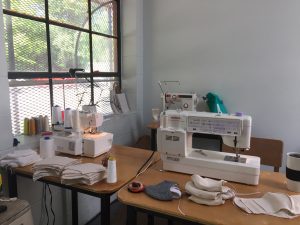
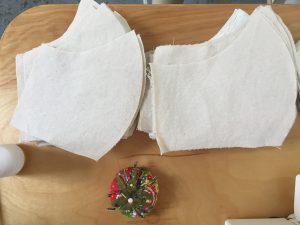
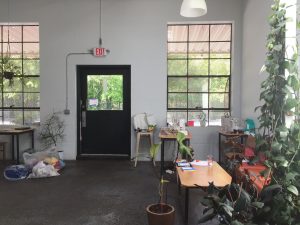
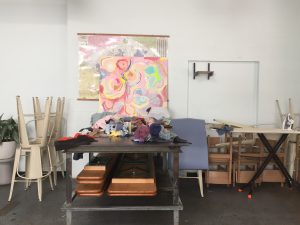


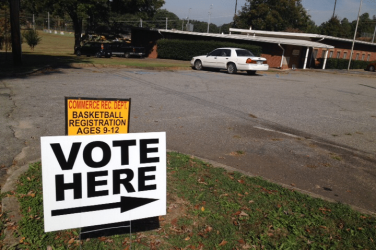
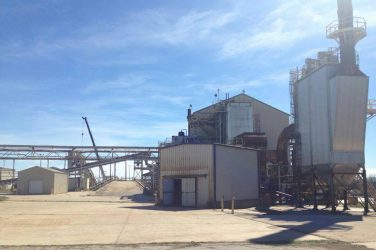
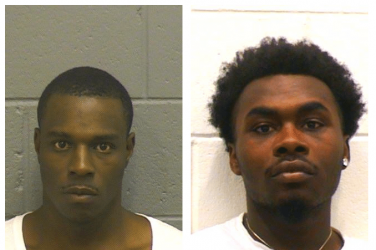

Show Comments (0)